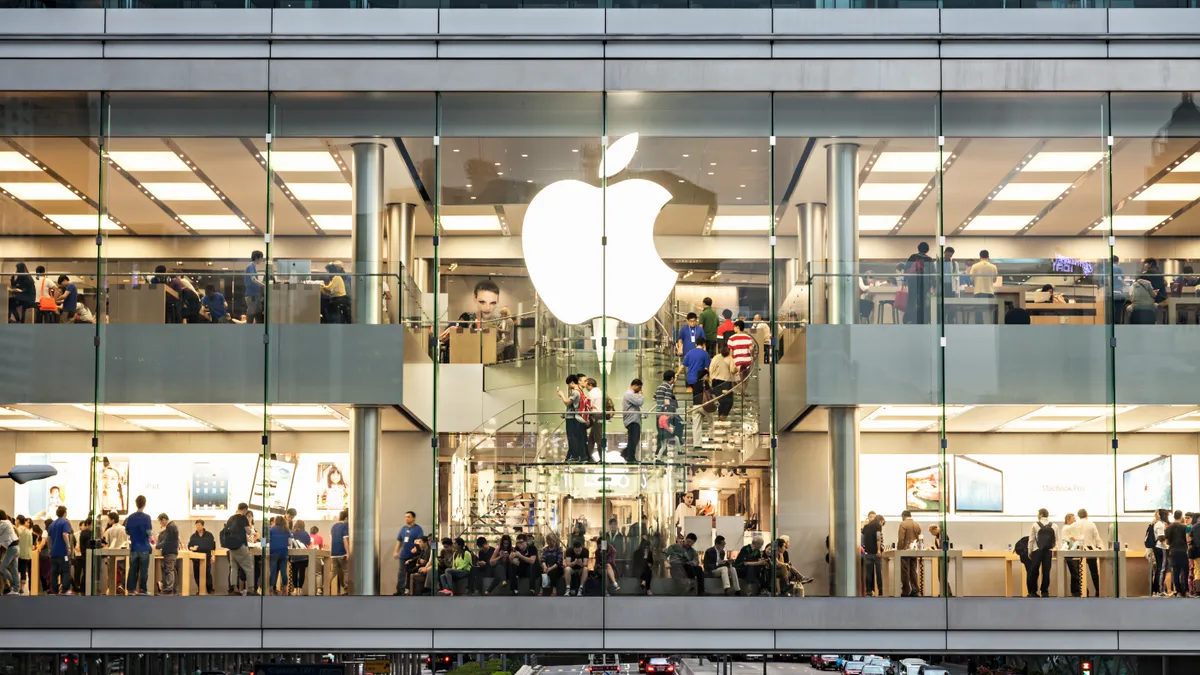Dive Brief:
- While technology is capable of benefiting society, people developing technology need to instill it with human knowledge, said Apple CEO Tim Cook during commencement at the Massachusetts Institute of Technology on Friday, Reuters reports. It's particularly important because technologies that bring people together can also divide them through privacy and security threats.
- "I'm not worried about artificial intelligence giving computers the ability to think like humans," Cook said, according to Reuters. "I'm more concerned about people thinking like computers, without values or compassion, without concern for consequence."
- Cook said technology can help solve some of the problems facing humanity, but machines don't operate entirely on their own. "Technology is capable of doing great things, but it doesn't want to do great things. It doesn't want anything. That part takes us all," Cook said.
Dive Insight:
Cook wasn't all business and moral teachings. Highlighting his search for answers and meaning while in grad school, Cook said he turned to meditation, read philosophy and "sought guidance in religion," according to The Boston Globe report. "And in a moment of youthful indiscretion, I might have even experimented with a Windows PC."
Jabs at market competitors aside, Cook touched on an important part of technology that more leaders are becoming focused on. There's a social responsibility that goes hand in hand with a technical society, and the people programming the machines have to remain cognizant of the potential impacts.
Too often, a device or piece of technology is created without understanding the long-term consequences. For example, when developers program a cool piece of internet-connected technology, many focus on functionality over security. But down the line, malicious actors could wreak havoc by creating a botnet.
Beyond the device development lifecycle, tech leaders are expressing concern for the rise of automation and it's impacts on the workforce. With self-driving cars and other advanced technologies on the horizon, there is widespread concern about automation's potential to displace jobs. For some, the answer is possibly a universal basic income, stepping in to fill the financial gaps of those put out of jobs by computers.













